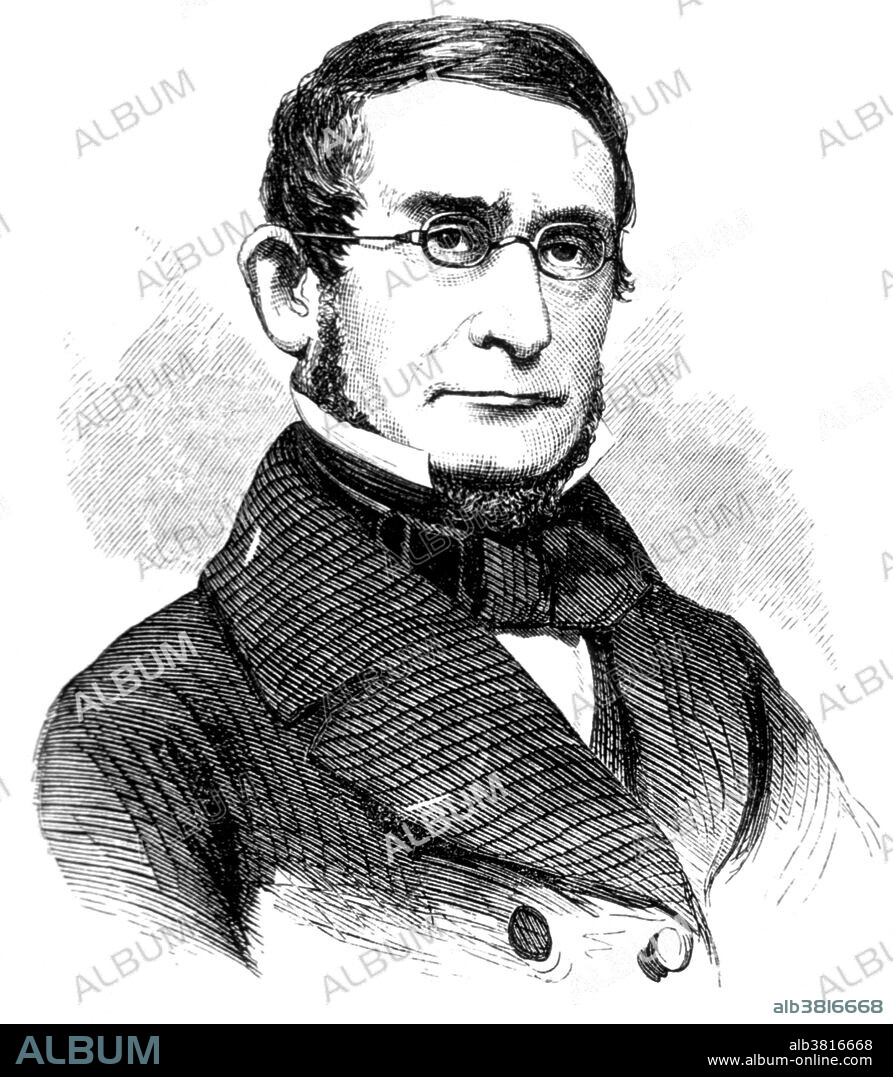alb3816668
Charles Thomas Jackson, American Scientist

|
Ajouter à une autre Lightbox |
|
Ajouter à une autre Lightbox |



Avez-vous déjà un compte? S'identifier
Vous n'avez pas de compte ? S'inscrire
Acheter cette image.
Sélectionnez l'usage:

Titre:
Charles Thomas Jackson, American Scientist
Légende:
Voir la traduction automatique
Charles Thomas Jackson (1805-1880) was an American physician and scientist who was active in medicine, chemistry, mineralogy, and geology. He was a brother-in-law of Ralph Waldo Emerson and a graduate of the Harvard Medical School In 1829 he traveled to Europe where he studied both medicine and geology for several years. Upon returning to the United States he played an active role in the new state geological survey movement, serving successively between 1836 and 1844 as the state geologist of Maine, Rhode Island, and New Hampshire. Jackson is particularly remembered for his involvement in a series of often bitter priority conflicts that left their marks on the scientific and social scenes of his day. They followed a standard pattern: a discovery would be announced by someone, Jackson would then claim prior discovery, and a controversy would ensue. Some of the conflicts included: the telegraph (Samuel F. B. Morse), the digestive action of the stomach (William Beaumont), and the anesthetic effects of ether (William T. G. Morton). By 1873 Jackson was afflicted with mental illness and spent the remainder of his life in retirement. He died at the age of 85.
Crédit:
Album / NLM/Science Source
Autorisations:
Taille de l'image:
3392 x 3890 px | 37.8 MB
Taille d'impression:
28.7 x 32.9 cm | 11.3 x 13.0 in (300 dpi)
Mots clés:
AMÉRICAIN • CÉLÈBRE • CELEBRITE • DOCTEUR • DOCTEURS • GEOLOGIE • HOMME • ILLUSTRATION • MEDECIN • MINERALOGISTE • PERSONNAGES • PERSONNALITÉS • PERSONNE • PORTAIT • PORTRAIT • POTRAIT
 Pinterest
Pinterest Twitter
Twitter Facebook
Facebook Copier le lien
Copier le lien Email
Email
